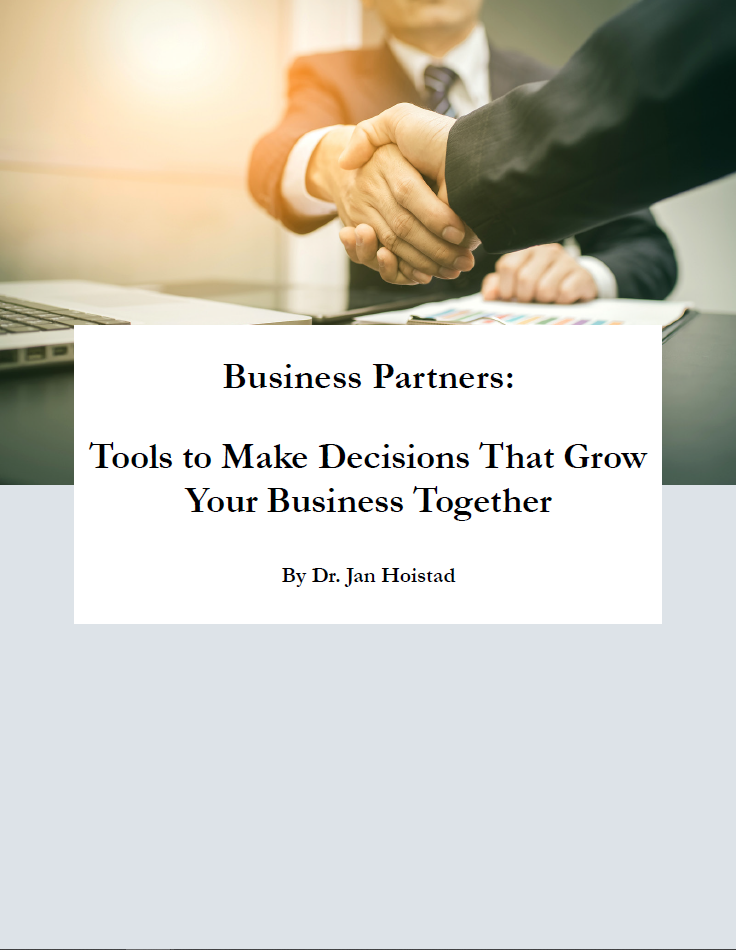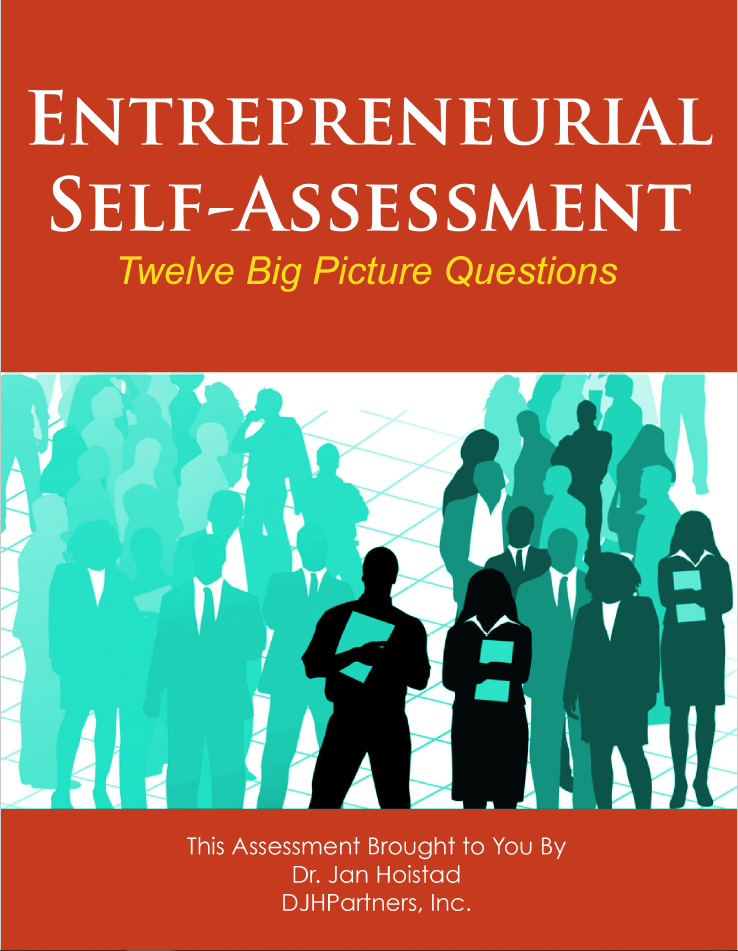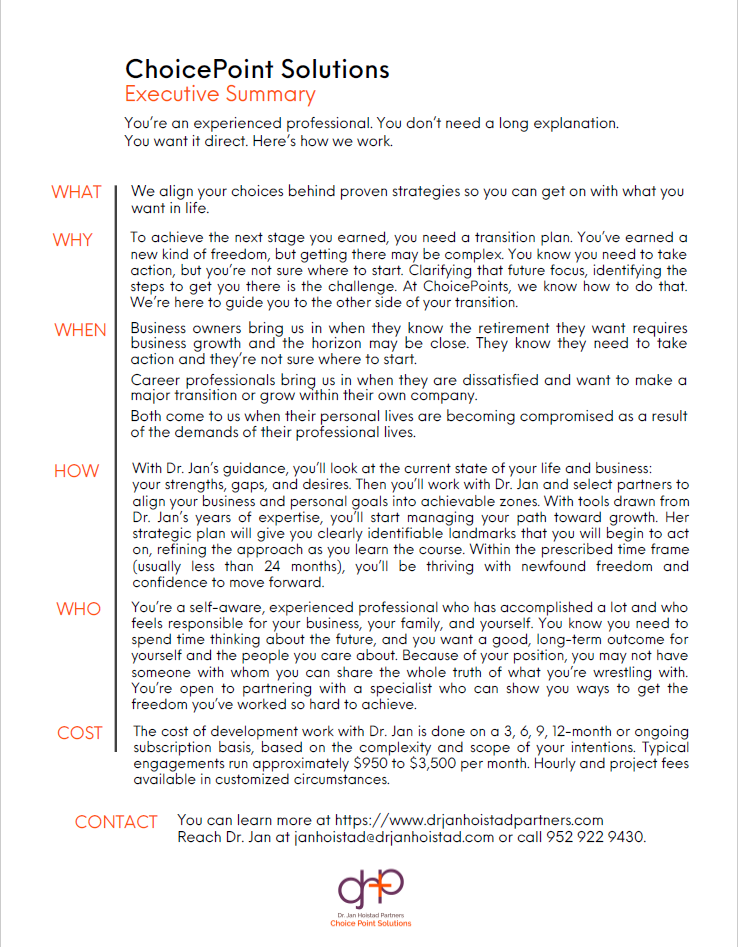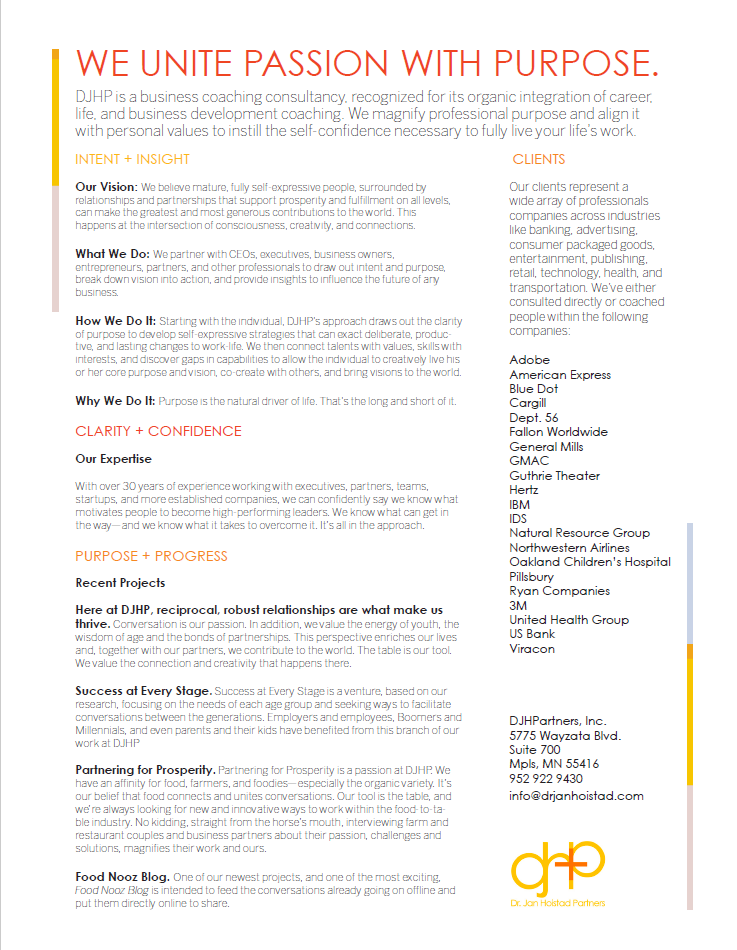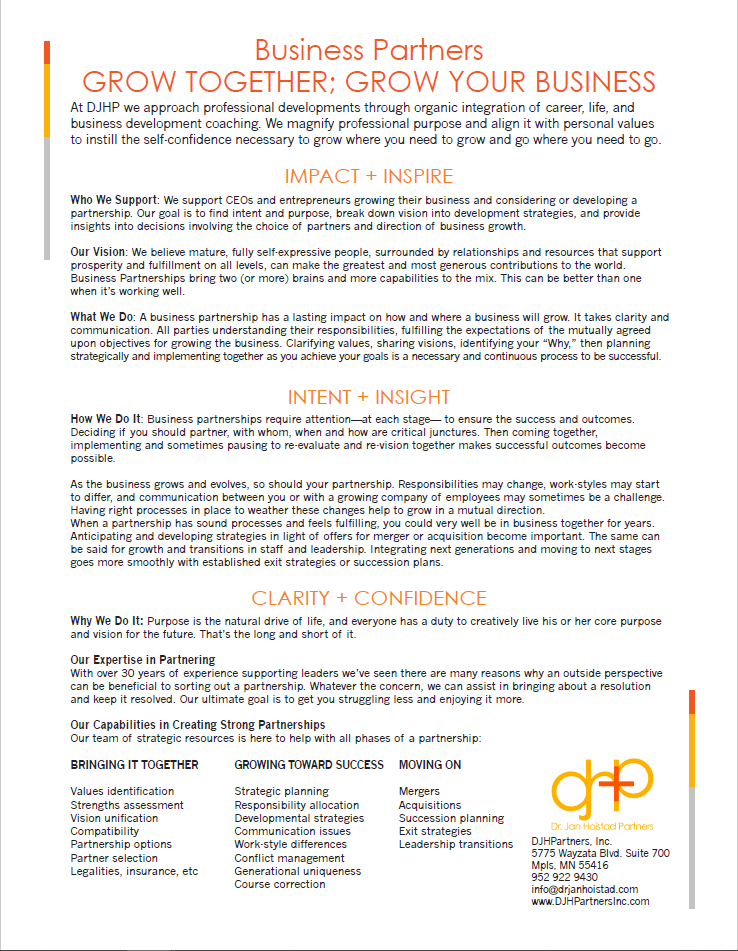Resources for Owners and Business Partners
Business Partners: How Choice of Relationship Style Impacts the Success of Your Business
By Dr. Jan Hoistad
Unique businesses spring up around an innovation, among friends, in a basement or garage, on the golf course or over coffee. Professional firms form partnerships around complimentary skill sets, enhanced presence with a broader scope of services, shared overhead and support staff. Small to midsized business owners enter into partnership because it’s often necessary for growth. Coming together pools connections, spreads financial risk, may increase the employee base, and expand the marketplace.
When a partnership is going well, it’s great. There’s energy, creativity, productivity, even humor or fun. Differences and disagreement put partnership stability to the test. Difference can feel like something resolvable together. Or it can be experienced as annoying or even threatening depending on one’s life experience and maturity of relationship knowledge and skill set. When a relationship is not going well, people report feeling distracted, lethargic, and unproductive.
They may even stop communicating. Left unattended, such a relationship feels disconnected. If there is out-and-out conflict, a relationship can quickly deteriorate, become divisive, and spread negativity like a virus throughout a team or company. After the honeymoon in any relationship, differences between people naturally have a way of exposing themselves at any time—around large or small issues. Unless business associates have a mutual relationship mindset, even simple behaviors may trigger a negative response. If small things cause disruption, then bigger challenges which naturally occur over the course of each partner’s development and over the course of a business’s stages of development, may likely feel insurmountable.
Having the mindset, tools, and skills to navigate together is a necessity for a smooth functioning business.
Business Partners: Tools to Make Decisions That Grow Your Business Together
By Dr. Jan Hoistad
In the beating heart of every entrepreneur, business owner, and business partner, is a desire to move with ease and speed, to be one step ahead of the curve, to have a partner and team working smoothly in the flow, laser-focused on achieving mutual goals and agreed upon outcomes, driven to succeed.
A business is fertile ground for partnering with one or more people, often with complimentary skills, energy and enthusiasm, sometimes investing money, bringing connections or a book of business.
Like many relationships, business partnerships are sometimes humorously referred to as a working marriage. Both are “working relationships.” Humor highlights the complexity such close relationships bring. And like the long-term commitment of a personal relationship, the spirit that brings people together in business also requires interpersonal skill and attention to make the business and the relationship successful over the long-haul.
Yet, while business partners enter into their legal and working relationship with positive expectations, even enthusiasm, statistics show that anywhere between 50% to 70% of business partnerships ultimately fail. How do you inoculate yourself against such a demise?
This article introduces an approach to navigating an important business relationship that should be a great asset to you and your business. It offers insight into the mindset, skills, and tools to work as Big Picture Partners™.
This style of relating in your business provides you the communication tools and processes so you arrive at mutually satisfying solutions to your business needs—so you enjoy the process of owning, growing, and even transitioning or even selling your business together.
Entrepreneurial Self-Assessment:
Twelve Big Picture Questions
By Dr. Jan Hoistad
What Are Your Entrepreneurial Planning Needs?
This download includes an Entrepreneurial Self-Assessment. While not statistically based, it does yield intuitive, observational and experiential results that fall into three basic Entrepreneurial Profiles. Each profile has unique entrepreneurial career planning needs.
Let’s take a look at your score to find out if you most closely resemble:
- The Growing Business Visionary (12 – 18 points)
- The Business Builder (19 – 32 points)
- The Entrepreneurial Path Finder (33 – 48 points)


